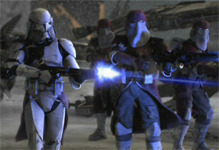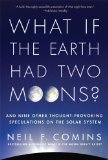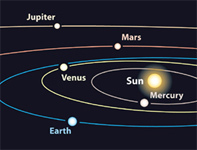Dan Thompson's Blog, page 15
November 5, 2012
If I Had Bought Star Wars…
Unless you’ve been hiding out in the desert canyons of Tatooine, you’ve heard the news that Disney bought out Lucasfilm for $4 billion and change. In addition to running Vader all over Disneyworld, they’re promising a new Star Wars film (Episode VII) in 2015. Every fanboy in the world is taking his turn as backseat driver, and I’m no exception. So, grant me a few moments to be R2 and tell Luke what I would do if I had bought Star Wars.
 The very first thing I would do is to rerelease the original trilogy on Blu-Ray in its completely unaltered form. I would take the best scan of the films (probably already existing at 4K as source material for the special editions), make sure they were clean, and put them out on Blu-Ray. No special edition. No Greedo shooting first. No Hayden Christensen on Endor.
The very first thing I would do is to rerelease the original trilogy on Blu-Ray in its completely unaltered form. I would take the best scan of the films (probably already existing at 4K as source material for the special editions), make sure they were clean, and put them out on Blu-Ray. No special edition. No Greedo shooting first. No Hayden Christensen on Endor.
Every fanboy of my generation has been lusting for precisely this since before Blu-Ray even existed, and is ready to shell out hard cash for this. Doing this simple act would generate $2-$3 billion right off the bat. My math? 50 million fan boys (world-wide) at $50 for the trilogy comes out to $2.5 billion. Play around with the pricing, add more fan boys, start talking net instead of retail… the numbers move around. But clearly, this one simple act that Lucas has blocked for years would repay a decent chunk of the purchase price.
I would follow that up with a Blu-Ray release that was a mix of original and special edition. This would be for the true aficionados, who insist that Han shot first but liked some of the cleaner special effects that came with the special editions and might like some of the deleted scenes as in-line bonus material. Fine-tuning this would be a fan-by-fan project, but the options available on modern Blu-Rays should allow viewers to pick and choose. This would sell far fewer copies, but you could easily charge more. It won’t finish paying off the Lucasfilm mortgage, but it will shave off a few more points.
Mind you, this is money George could have had himself but chose to thwart the fans. I don’t expect Disney will leave that money on the table.
Then we have to start talking about the other movies. I can see the commercial logic of Disney wanting to start afresh with the later chapters, but if I were running the show, I would start with the prequels. Yes, they’ve already been done, but they were done wrong. I don’t expect much disagreement on that.
I don’t fault the general arc of the story. Specifically, I’m fine with finding Anakin as a kid (though I’d start him post-puberty), seeing him grow to be an undisciplined Jedi, and all the while seeing Palpatine manipulate events to build his power. That stuff is okay. Where it failed was in other areas:
It was meant for kids, not the adults who had grown up on Star Wars.
Anakins’ motivations were lame, both surrounding his mother and Padme.
Anakin was too much of a whiner, hardly the precursor for Darth Vader in the original trilogy.
 How would I have fixed all that? There are the obvious choices of removing Jar-Jar entirely and making Anakin older when we first meet him, but beyond that, I would make Anakin’s character much deeper and thoughtful. Instead of him becoming a victim of his own emotional immaturity, he would make rational choices based on enlightened self-interest. He would act for himself, for the Jedi, and ultimately for the good of the galaxy.
How would I have fixed all that? There are the obvious choices of removing Jar-Jar entirely and making Anakin older when we first meet him, but beyond that, I would make Anakin’s character much deeper and thoughtful. Instead of him becoming a victim of his own emotional immaturity, he would make rational choices based on enlightened self-interest. He would act for himself, for the Jedi, and ultimately for the good of the galaxy.
And that is the biggest disappointment I had with the prequels and how I would have done them differently. I want to see Anakin make a rational choice to turn to the dark side. I want to see him split from the rest of the Jedi over a matter where it was possible to take two sides. I want to see him take Palpatine’s side on this issue because he believes in it. And finally, I want to see him take up the dark side because he needs its power to carry out his vision for the galaxy. He might still be Palpatine’s chess piece, but he would be elevated from pawn to knight.
That is the kind of back story that lets Vader be the man he was in the original trilogy: dedicated, ruthless, and willing to turn on his master when the time came.
And then I would turn to the follow-up movies, and just like my reboot of the prequels, I would make these for adults, not for the kids. It doesn’t have to be rated R, but it needs a serious, adult theme. And for that, I would choose the deliberate genocide of the Jedi and Sith.
What? That’s right. The Jedi and Sith must be exterminated.
 At least, that will be the position of the newly restored Republic. It was their faith in the Jedi that allowed their downfall. It was the rise of powerful Sith lords that crushed them. Without them, the Republic would have continued. Its politics might have been corrupt, but at least they had a political voice rather than the force choke of Palpatine and Vader. Wouldn’t they be better off with these mutants out of the picture?
At least, that will be the position of the newly restored Republic. It was their faith in the Jedi that allowed their downfall. It was the rise of powerful Sith lords that crushed them. Without them, the Republic would have continued. Its politics might have been corrupt, but at least they had a political voice rather than the force choke of Palpatine and Vader. Wouldn’t they be better off with these mutants out of the picture?
But doesn’t that make our heroes from the original trilogy (especially Luke and Leia) the bad guys? No, in a search for scapegoats and revenge, the Republic has become insane and evil. The Republic is now the enemy, casting out or heroes and hunting them down along with their children. Even if we throw midichlorians out the window, it is well known from the first films that the Force runs strong in Luke’s family. Throw in the children, siblings, and cousins of the old Jedi order, and you have a genetic pool of would-be Force-users who will be on the run.
Thus, our heroes are thrown back into the role of the underdog. They are stripped of many of their allies. They have to survive, form their own resistance for mutual support, and train a new generation of Jedi in secret. Then, by the time the third film comes along, a new danger will threaten the Republic, and these Jedi, old and new, will have to step up and become the guardians of the Republic once again.
It is a tale of revenge vs. redemption.
Anyway, that’s what I would have done if I had bought Star Wars. What would you have done?
November 2, 2012
Review: What if the Earth Had Two Moons? By Neil Comins


This is a collection of ten what-if scenarios for alternate earths in various solar systems. It includes the title scenario of Earth having two moons, how we would have gotten them, their effects on the Earth over time, and ultimately what’s going to happen to them. Other scenarios include the Earth as a moon, the Moon in a retrograde orbit, other planets in Earth’s orbit, Earth’s elsewhere in time, Earth’s elsewhere in the galaxy, and even what will happen to the Earth when the Milky Way and Andromeda galaxies eventually collide.
The nice thing about this for me is that he explores the science behind a variety of fantastical other Earths. In other words, he’s done much of the homework for exotic SF locales. Most of the science is well-written and aimed at the educated layman. A few bits got boring for me, but by and large it was good stuff.
However, this was not a particularly good Kindle edition. The text and diagrams themselves were decent, but the final 15% was taken up by a useless index (i.e. it had no links back into the text) and a collection of footnote/endnotes with no context back to the earlier text. Some of this may be simple limitations of the format, but I would have liked to have seen them handle it differently. If the index was going to be that useless, it should have been removed, and if there was no way to handle the footnotes more elegantly, they should have been inlined parenthetically in the text.
So, I enjoyed the book immensely, but I wish I had bought the dead-tree edition instead.
October 31, 2012
To NaNo or Not to NaNo
That’s the 50,000 word question. More specifically (yet in less than 50,000 words), I mean to ask whether or not to participate in this year’s National Novel Writing Month, aka NaNoWriMo. In general I’m positive on NaNoWriMo. If you’ve never written a novel but always wanted to, I highly recommend it. Either it will give you the kick in the pants to actually put in the effort, or it will force you to admit that after all these years, you don’t really like to write after all.
But I’m in a very different situation.
I’ve already written a novel. (BTW, that’s it on the right-hand column. Go buy a copy so that I can eat lunch.) In fact, I’ve already written three novels, and I’m rapidly closing in on the end of my fourth. I don’t need NaNoWriMo to find out if I can finally write that book.
 What’s more, I have a pretty full writing schedule right now, and a number of my required tasks should realistically take priority over starting a new draft. First, I really do need to finish the draft of Debts of my Fathers. My original plan schedule had been to finish it in July, but as I’ve said elsewhere, I hit a snag. Second, I have first-reader comments back on Ships of My Fathers, and I need to make another editing pass on that, polish it, send it to my proofreader, and then start pushing it through the publishing process – something I had planned to do this calendar year. And third, I still have to do the edits to Hell Bent and get it out the door to first readers. Those tasks could probably eat up most of my writing time for the rest of the year.
What’s more, I have a pretty full writing schedule right now, and a number of my required tasks should realistically take priority over starting a new draft. First, I really do need to finish the draft of Debts of my Fathers. My original plan schedule had been to finish it in July, but as I’ve said elsewhere, I hit a snag. Second, I have first-reader comments back on Ships of My Fathers, and I need to make another editing pass on that, polish it, send it to my proofreader, and then start pushing it through the publishing process – something I had planned to do this calendar year. And third, I still have to do the edits to Hell Bent and get it out the door to first readers. Those tasks could probably eat up most of my writing time for the rest of the year.
Plus, this November is going to have less free time for me than previous years. I’m looking for a new job (mad C++ skills if anyone has a spot), and my wife may have to do some travelling this coming month. Add to that the ongoing demands of special needs kids, some teaching that I do, and a decent social life, and it’s going to be hard to make the time to do NaNoWriMo on top of all the rest of the writing-related work on the three projects already in progress.
And yet…
 NaNoWriMo is an adrenaline rush for mad creativity junkies like me. It’s a blast. It’s some of the most fun I’ve had out of the bedroom. Hell, considering that I’ve done some of it on my laptop in bed, I suppose it also counts as some of the most fun I’ve had there too. There’s something about it that just sucks me in and squeezes those creative juices into a tangy fiction cocktail with just enough sweetness to cover the raw grain alcohol underneath. It’s heady stuff, and it’s hard to walk past it without at least taking a sniff.
NaNoWriMo is an adrenaline rush for mad creativity junkies like me. It’s a blast. It’s some of the most fun I’ve had out of the bedroom. Hell, considering that I’ve done some of it on my laptop in bed, I suppose it also counts as some of the most fun I’ve had there too. There’s something about it that just sucks me in and squeezes those creative juices into a tangy fiction cocktail with just enough sweetness to cover the raw grain alcohol underneath. It’s heady stuff, and it’s hard to walk past it without at least taking a sniff.
I actually have a project in mind. By my original schedule, I was going to start it in October. It’s the sequel to Hell Bent, and my plan was to do the first-pass edits to that novel in September, so that in October I would be fully steeped in the character and universe and ready to go. As it is, I still haven’t done those edits yet. And of course, I was going to do the Ships of My Fathers work first while the draft of Debts of My Fathers was still fresh, allowing me to go back and drop in any details to the earlier work that were needed to set up the sequel.
Which brings me right back to where I was before: needing to be the responsible professional and do the scheduled work first.
 So, right now I’m all over the map and completely undecided. With a day to go, I honestly have no idea whether I’ll be doing NaNoWriMo or not.
So, right now I’m all over the map and completely undecided. With a day to go, I honestly have no idea whether I’ll be doing NaNoWriMo or not.
I guess we’ll see what happens Thursday morning.
October 29, 2012
So I Skipped Comic-Con
The travelling version of Comic-Con came to Austin over the weekend, and I had planned on going, or at least stopping by on Saturday. I’d never been to a Comic-Con, and I’ve heard so much hype about them, I figured I should see at least one to check it off my bucket list. And this one promised something pretty spectacular, a gathering of the Star Trek Next Generation cast for a 25th Anniversary panel.
But in the end, I blew it off.
 So, the obvious question is why, and I’m afraid I don’t have some flashy answer. I like cons. I like some of the shows and actors that were going to be represented there. And I have nostalgia for ST:TNG, given that I met my wife the year that show started. In theory, this was a good show for me to attend. But ultimately, I think what killed it was that this is a media con, not a literary con. It’s about the show and the actors, not about the writers.
So, the obvious question is why, and I’m afraid I don’t have some flashy answer. I like cons. I like some of the shows and actors that were going to be represented there. And I have nostalgia for ST:TNG, given that I met my wife the year that show started. In theory, this was a good show for me to attend. But ultimately, I think what killed it was that this is a media con, not a literary con. It’s about the show and the actors, not about the writers.
I’ve met actors at other cons, and these were actors from shows I really admired. I met Ellen Muth from Dead Like Me. I met Richard Hatch from both the old and the new Battlestar Galactica. I’ve met Michael Dorn from Star Trek, the Next Generation. Plus, because Austin is one of those odd little off-Hollywood towns, I’ve run into folks like Sandra Bullock and Quentin Tarantino just wandering around the city minding my own business. These are all great actors, but when I’ve seen them I haven’t had anything to say more than, “I like your work.”
And that’s been about it.
But a writer? Oh, man… I went totally fanboy over Jack McDevitt when I met him. I’ve almost managed to keep my cool when talking to Elizabeth Moon, but only because I’ve seen her a dozen times. And C. J. Cherryh? Larry Niven? Neil Gaiman? I’ve seen them, but I was so tongue-tied I couldn’t do much more than say hello as ten thousand questions raced around my brain. God help me if I ever come face to face with Jim Butcher, Aaron Sorkin, or Ronald Moore.
And it’s not just because I’m also a writer, or at least, it’s not directly that. I get excited about meeting writers because I want to hear more about the stories. I want to know the back-story that never made it into the book, the little detail that made my favorite character more real, and even some hints about what might be coming next. It’s the story that grabs me, even in the movies and the TV shows. Yes, I appreciate that there is good and bad in the actors’ execution, and good is definitely desired, but what really turns my crank is the story, the lines, the writing. Maybe that comes from being a writer myself, but more likely, it was my love of story that got me interested in writing.
Strangely, my one real regret of not going was missing another chance to meet Wil Wheaton. You may recall him as Wesley Crusher on Star Trek or know him from more recent appearances on The Big Bang Theory, but that’s not why I wanted to meet him.
 You see, I remember him mostly as Gordie Lachance, the story-telling kid from Stand By Me. But it’s not that I wanted to talk to him about that film. Rather, I wanted to talk to him because he ultimately followed the path that his character did. He went on to become a writer. And that’s why I wanted to meet him.
You see, I remember him mostly as Gordie Lachance, the story-telling kid from Stand By Me. But it’s not that I wanted to talk to him about that film. Rather, I wanted to talk to him because he ultimately followed the path that his character did. He went on to become a writer. And that’s why I wanted to meet him.
(But alas, the only thing on the program where I was sure to see him was too late on Saturday for me to go to, and it was likely to be swamped as well.)
So, maybe some other time. I just hope that when it happens, I’ll have more to say than, “Um, uh, poker… I like your poker. Writing stories, yeah.”
October 26, 2012
Review: The Protectors, ed. Paige E. Ewing

 This is a collection of superhero short stories set in a shared universe, with stories by a dozen authors and some artwork by others. It’s really a series of vignettes in the ongoing struggle between the Protectors and the Defilers. Of course, nothing is quite so black and white as they were in Superman’s days, so we have ethically challenged heroes, villains who are motivated by a higher purpose, and plenty of backstabbing team-switching to go around.
This is a collection of superhero short stories set in a shared universe, with stories by a dozen authors and some artwork by others. It’s really a series of vignettes in the ongoing struggle between the Protectors and the Defilers. Of course, nothing is quite so black and white as they were in Superman’s days, so we have ethically challenged heroes, villains who are motivated by a higher purpose, and plenty of backstabbing team-switching to go around.
As a collection, it was a little hit-or-miss for me, but that’s almost to be expected in a multi-author anthology such as this. A few simply did not work for me, while others really shined. A couple of those standouts were “Pukeman” by “Crippen” and Going Solar by Williams, but my favorite was probably “Interview with a Supervillain”. It was an interesting little tale of what it would be like to actually interview the most notorious and evil villain around. Up close, he’s not quite so reprehensible as you’d expect. Frankly, I’d have like that story to have been longer, just to explore that a little further.
Now, as a disclaimer, I was given this book as an advanced reader copy by a friend, so I didn’t pay for it, but if sexy and morally ambiguous superheroes are your thing, give it a shot.
October 24, 2012
The Plot is Thataway
With a blog named “Making it up as I Go”, it’s pretty obvious that I don’t do outlines, but neither am I flying completely by the seat of my pants with no plan as to what comes next. So, pantser or plotter? Maybe I’m somewhere in between.
 The best metaphor I have for my process is a road trip. I’m going to New York City. Before I walk out to my car, I have a clear destination in mind, not just the city, but that diner at 58th and Columbus with the delicious chicken parmesan sandwich. Similarly, I have the climactic scene and the denouement clearly in my head before I start writing. The question that remains: how do I get there?
The best metaphor I have for my process is a road trip. I’m going to New York City. Before I walk out to my car, I have a clear destination in mind, not just the city, but that diner at 58th and Columbus with the delicious chicken parmesan sandwich. Similarly, I have the climactic scene and the denouement clearly in my head before I start writing. The question that remains: how do I get there?
Well, I also usually know where I’m starting from. I’m near Austin, Texas. I have several options on how to get there. There’s a southern route, going along the Gulf of Mexico and then up the Atlantic coast. Or I could go north through Chicago and cut back east across America’s heartland. Or I could head northeast from the start, going up US 79 and then looking for the old Appellation Trail.
 At that point, I still haven’t committed myself to either the plotter or the pantser strategies. The plotter (or outliner) would get out all the maps, plot the route, decide where to eat, where to sleep, where to get gas, how long each section was going to take, and what time of day to hit each point. The true pantser would hop in the car and drive, trusting to fate that he’ll show up in New York yet acknowledging that he might pass through Tokyo on the way.
At that point, I still haven’t committed myself to either the plotter or the pantser strategies. The plotter (or outliner) would get out all the maps, plot the route, decide where to eat, where to sleep, where to get gas, how long each section was going to take, and what time of day to hit each point. The true pantser would hop in the car and drive, trusting to fate that he’ll show up in New York yet acknowledging that he might pass through Tokyo on the way.
Rather than fully embracing either strategy, I pick a waypoint. I’m going to start by going to Dallas. I don’t worry too much beyond that, nor do I plan out everything between here and Dallas. Dallas is north, so I start looking for a way to go north. Before long, I find myself on I-35, but rather than making the logical stop for food and fuel in Waco, I find myself stopping off at West, Texas, the kolache capital of Texas and sampling some of the Texanized Czech culture. Similarly in my story, I pick some event that will move me in the direction of my climax and see what happens on the way there.
Then there’s that detour through Waxahachie, and the next thing I know, I’ve actually gone through Ft. Worth instead of Dallas. But that’s OK, because it turns out that Ft. Worth was right for my little road trip. And so it continues, up through Chicago because that’s what feels right. I opt for Pittsburgh and Albany and then dive south into the city, leaving my car behind in Yonkers and finishing things off by train and by foot.
 Writing a novel is a lot like making that kind of road trip for me. Yes, the destination is important, but it’s not the same without hitting all those fanciful detours along the way. The world’s largest ball of string is in Weston, Missouri, and it makes as much an impact on my journey as that one-armed bartender at the orbital port of Tau Ceti Prime makes on the novel’s journey. Yes, both could have been complete without these detours, but it was the detours that made the journeys real.
Writing a novel is a lot like making that kind of road trip for me. Yes, the destination is important, but it’s not the same without hitting all those fanciful detours along the way. The world’s largest ball of string is in Weston, Missouri, and it makes as much an impact on my journey as that one-armed bartender at the orbital port of Tau Ceti Prime makes on the novel’s journey. Yes, both could have been complete without these detours, but it was the detours that made the journeys real.
It does make for a much bloodier edit. The two nights stuck in Buffalo really sidetracked the whole plot and need to be cut, but I had to write the whole alien wedding before I could see that it didn’t fit. That’s simply the price I have to pay. Maybe it’s not as professional as doing the outline ahead of time, but the story doesn’t really come alive for me until I’m into it.
Now, with a slight nod towards the outliners, I did pick up a useful habit during my very first NaNoWriMo back in 2004. As I’m writing my way along, if I think of something down the road, I jot it down in the file below the new text I’m generating. I do what I can to keep those little thoughts in order, putting the bit about Yonkers well after seeing the ball of string in Missouri. It’s a tiny thing, rarely grammatical, and meaningless to anyone but me. Something like:
[ball of string in Missouri… can I make it work?]
[Try for Chicago, then east.]
[How far out of the way would Detroit be?]
[Switch to the train in Yonkers. Funny name… do something with that?]
The parts immediately ahead of where I’m writing tend to fill up with more detail, because I can envision those scenes (or that part of the road trip) more easily than the stuff that’s further away. Plus, when I stop in the middle of a scene, which I often do, I can put in a little note about what comes next.
 As I go, those parts get written, and the little notes are erased. Maybe that counts as some kind of quasi-outline, but it never exists all at once, and it washes away by the time I finish. Rather than a proper map, I tend to think of them as notes scrawled on the back of a McDonald’s bag, “turn right at US 20 for the Rise N Roll bakery”. That scrap will be gone as soon as the angel food cake is in my hand. If I ever managed to save them, they would be the running commentary on a novel that wasn’t quite what I actually wrote.
As I go, those parts get written, and the little notes are erased. Maybe that counts as some kind of quasi-outline, but it never exists all at once, and it washes away by the time I finish. Rather than a proper map, I tend to think of them as notes scrawled on the back of a McDonald’s bag, “turn right at US 20 for the Rise N Roll bakery”. That scrap will be gone as soon as the angel food cake is in my hand. If I ever managed to save them, they would be the running commentary on a novel that wasn’t quite what I actually wrote.
So that’s what I mean when I say I’m making it up as I go. How about you?
October 22, 2012
Birthdays and Colony Calendars
We celebrated my wife’s 101100th birthday over the weekend. No, she’s not into her 101st millennium. She’s simply been denoting them in binary since her 101000th birthday or so. But it got me to thinking about birthdays on colony worlds and how those will be calculated.
 Take Mars as a simple example. The Martian year is 687 Earth days, and with a day a little longer than 24 hours, it’s only 668 Martian days. So, if you were born on the first day of the new Martian year, when are you one year old? When do you get to celebrate your birthday?
Take Mars as a simple example. The Martian year is 687 Earth days, and with a day a little longer than 24 hours, it’s only 668 Martian days. So, if you were born on the first day of the new Martian year, when are you one year old? When do you get to celebrate your birthday?
It really comes down to which calendar you keep, but even then, you may not keep the same calendar for everything. New Years really only comes to Mars once per Martian year, but maybe Christmas comes twice. Martian months may not make much sense with Phobos and Deimos, but they were always a little arbitrary on Earth as well. Martian Independence Day is certainly celebrated every Carter 4th, but when do you have Thanksgiving?
 There’s certainly a temptation to go full in one direction or another, i.e. stick with the Earth calendar or go native with the local calendar, but if there’s enough interaction between Earth and the colony, there’s some value in going halfway. Any joint schedule between the two worlds (or if we go interstellar, dozens of worlds) should be on a shared calendar, and since the Earthers had theirs first, this standard calendar should be based on the Earth year.
There’s certainly a temptation to go full in one direction or another, i.e. stick with the Earth calendar or go native with the local calendar, but if there’s enough interaction between Earth and the colony, there’s some value in going halfway. Any joint schedule between the two worlds (or if we go interstellar, dozens of worlds) should be on a shared calendar, and since the Earthers had theirs first, this standard calendar should be based on the Earth year.
Another reason for using a standard reference calendar is a bit closer to this question of your birthday. When do your six-year molars come in on Mars? What about on Ganyemede? When will you go through puberty? Who is older, you or your cousin from Europa? There are plenty of biological reasons to keep track of our age in a standardized fashion. Even if we get our tetanus booster shot every five years on Mars, we do it because it was every ten years on Earth.
But still, when do you have that birthday party?
 Are you on Mars all the time, or are you rocketing off to Jupiter or Saturn on a regular basis? It’s tempting to say that if you stay in one place all the time, you may as well celebrate it according to the local calendar. Then again, 668 days is a long time to wait for a celebration on Mars. Even worse is the poor kid growing up on Titan, orbiting around Saturn. He’ll be married with kids of his own before his first birthday. Hmm, maybe the local calendars aren’t such a good idea after all. But in some other solar system, on an Earth-like world with seasons of its own, following some arbitrary “standard calendar” for your birthday sounds silly.
Are you on Mars all the time, or are you rocketing off to Jupiter or Saturn on a regular basis? It’s tempting to say that if you stay in one place all the time, you may as well celebrate it according to the local calendar. Then again, 668 days is a long time to wait for a celebration on Mars. Even worse is the poor kid growing up on Titan, orbiting around Saturn. He’ll be married with kids of his own before his first birthday. Hmm, maybe the local calendars aren’t such a good idea after all. But in some other solar system, on an Earth-like world with seasons of its own, following some arbitrary “standard calendar” for your birthday sounds silly.
I suspect that the real answer is that you’ll celebrate your birthday whenever it makes sense. If your local calendar’s year is only ninety-four days – and short ones at that – then the local custom might evolve to have quadrennial celebrations for your birthday. If you’re dragging yourself around that local star every fourteen hundred days, the local custom might be to celebrate your spring birthday followed by your summer birthday and so on, four celebrations each year. Only those folks skimming through the universe on ships will celebrate birthdays on the standard year.
Or maybe the whole concept of birthdays will fade away as one of those old Earth customs that seem silly to the post-human immortals who live amongst the stars.
What do you think?
October 19, 2012
Review: Looper
 Looper is a good old-fashioned time-travel film, complete with loops and the occasional paradox. Plus, it has two great actors (Gordon Levitt and Bruce Willis) letting loose with big guns. So, good story, good acting, and things go boom.
Looper is a good old-fashioned time-travel film, complete with loops and the occasional paradox. Plus, it has two great actors (Gordon Levitt and Bruce Willis) letting loose with big guns. So, good story, good acting, and things go boom.
The premise is that Joe (Gordon Levitt) is an assassin for the mob. Except, it’s not so much the mob today as it’s the mob in thirty years. They have access to some illegal time-travel equipment, and to avoid the excellent forensics of the future, they send their enemies back in time to be disposed of here. So Joe goes out to the corn field, sets up at the right place and right time, and when the target appears, bound with a bag over the head, he makes quick work of them. The payment is in shiny bars of silver, strapped to the back of the target. And back in Joe’s time, getting rid of a body is easy – especially a body no one will be looking for for another thirty years.
Nice job, good pay, and powerful connections. There’s only one catch. At some point in the future, the powers that be need to clean up your contract to keep you from testifying about some of those bodies, so eventually, your future self gets sent back, and you’re the one who has to clean it up. That one pays in gold, and you get to spend the next thirty years in wealthy retirement, waiting for the day that they’ll come to close your particular loop.
Well, one day future Joe (Bruce Willis) appears, and he does not want to go gently into that good night. And from there… well, complications ensue.
I don’t want to say anything else, because that would be getting into spoiler territory. I’ll just say that young Joe has very good reason for wanting old Joe dead, and old Joe has a very strong motivation to do something else before that happens. It’s a great dilemma for both of them, both pitting them against each other as well as making them uneasy allies.
The ending caught me by surprise, but looking back, I’m kind of surprised I was surprised. Mostly, I was just that wrapped up in the immediacy of the story I wasn’t able to do the plot analysis to look for the appropriate ending. I’ll say this at least, I don’t think I was the only one surprised. When the credits rolled, the theater was silent. No laughter. No applause. Just contemplative silence.
Now, like virtually all time travel tales, yes, there are a couple of plot holes, but I didn’t spot them in the moment. Rather, it was only later, thinking back on it that I started to wonder why such and such had not happened. But during the film, I was hooked.
So, I’ll give it four out of five stars, and I’ll probably try to pick up the disc when it drops to $12.
(This is the first movie review I’ve posted here, presumably more will follow. They’ll fill the Friday book review slot when I haven’t finished that next book. Yes, I’m a slow reader.)
October 15, 2012
Rant: That Should Never Happen Design
One of my hopes for the future – admittedly, one of my dying hopes – is to see an end to the “That Should Never Happen” design philosophy. This philosophy certainly has high aims, in that it tries to create technological solutions so reliable that workarounds and backups will be unnecessary. Why would I oppose such a noble philosophy? Because my experience with technology is that these attempts are doomed to imperfection and failure and that in the meantime, they are doing harm by removing our backup systems.
 Here’s one of the simplest and most frustrating examples of this philosophy: the death of power switches on computers. “But my computer has a power switch,” you say. “It’s right here on the front, glowing all blue and pretty!” If you’re that disillusioned, I’m sorry to be the one to break it to you, but that is not a true power switch. That is a spring-loaded contact-switch meant to signal the computer BIOS software to toggle the power state. It is not a true power switch.
Here’s one of the simplest and most frustrating examples of this philosophy: the death of power switches on computers. “But my computer has a power switch,” you say. “It’s right here on the front, glowing all blue and pretty!” If you’re that disillusioned, I’m sorry to be the one to break it to you, but that is not a true power switch. That is a spring-loaded contact-switch meant to signal the computer BIOS software to toggle the power state. It is not a true power switch.
 For those who remember the original IBM PC, it had a true power switch. It was a big and clunky red switch on the right side, back with the power supply and single cooling fan. When it was in the on position, it closed an electrical circuit, and power flowed into the PC. When it was in the off position, the circuit was open, and no power made it past that switch.
For those who remember the original IBM PC, it had a true power switch. It was a big and clunky red switch on the right side, back with the power supply and single cooling fan. When it was in the on position, it closed an electrical circuit, and power flowed into the PC. When it was in the off position, the circuit was open, and no power made it past that switch.
So why is that so superior? After all, aren’t software-controlled power systems better? They can go into power-saving states, turn the computer on and off at certain times, and ensure the proper shutdown of drive caches and other advanced OS/hardware systems. Yes, these software systems are great… except when they fail.
Of course, that kind of failure should never happen, but in the fifteen years or so since I last had a true power switch on my computers, every single one of these software-managed power systems has eventually had trouble. It’s not that it was stop working altogether, but it would start to have intermittent failure. The OS would crash, and the shutdown procedure would be unavailable. Even the so-called power switch would do nothing but continue its pretty blue glow.
And before you point to the superiority of your OS or hardware of choice, I have seen this happen across the PC/Apple divide as well as in Windows, Unix, and the Mac OS. That might not be your experience, but between computationally-heavy tasks like rendering, programming, and gaming, I push my computers a lot harder than the average user. In other words, I take my computers into the realm of “that should never happen.”
 Instead of having the backup of the physical power switch to fall back on, I must now crawl back behind the desk and unplug the computer from the UPS. On my laptop, I must physically remove the battery and wait several seconds for any on-board capacitors to discharge. I have to go even deeper towards the primal physical state to hack my own backup solution.
Instead of having the backup of the physical power switch to fall back on, I must now crawl back behind the desk and unplug the computer from the UPS. On my laptop, I must physically remove the battery and wait several seconds for any on-board capacitors to discharge. I have to go even deeper towards the primal physical state to hack my own backup solution.
While I continue to hope that this hubris-driven design philosophy will go away, I fear it is only on the rise. Apple has dominated much of the technology design in the last decade, and while they have made some absolutely fabulous products, they are a big believer in hiding the pesky details from the end-user. “No customer-serviceable parts inside.”
It may be a long-time before the trend reverses. In the meantime, I think I’m going to kill off some fictional designer, and as he plunges to the fiery depths with his malfunctioning machine, his final words will be, “But that should never happen.”
How about you? What flawless system has gone crunch in your life lately? Did some always-in-sync cache lose its state? Did a dripless faucet bust a valve? Did some permanently-lubricated sealed motor seize up?
October 12, 2012
Review: Autobiography of Ben Franklin

 My wife recommended this one to me, and she was absolutely right to. I loved it. Ben Franklin is probably my favorite figure from that period in American history, not just for what he did but for his character, wit, and humility. All of those shine through in this book.
My wife recommended this one to me, and she was absolutely right to. I loved it. Ben Franklin is probably my favorite figure from that period in American history, not just for what he did but for his character, wit, and humility. All of those shine through in this book.
His autobiography covers his life from his birth in 1706 through the mid-1760’s. It was written in four sections. The first was written as a letter to his son William in 1771, and it reads very much like one with personal asides and mention of family. The next was written in Paris in the early 1780s while acting as ambassador, and it was more formal, aimed at someone who at read that earlier letter to his son and encouraged him to continue the record. The third section was written after he had returned to Philadelphia after the Revolutionary War, and the fourth was a very short section that appeared to be an attempt to continue it towards the war.
I detailed the sources of the writing because it impacts how it is read. The early section (perhaps the first half of the book) reads as an Englishman speaking to his son, both to fill him in on the family history as well as to remind him of some of their joint experiences. It reads fairly sweetly and humorously. The Revolutionary War is not yet on his horizon. At best, he expresses occasional distress as the some of the decisions by the crown and the decisions by the William Penn’s heirs back in England over the management of the Pennsylvania colony.
The later sections were written during or after the war, and hints of family are gone. He does not say so explicitly, but it is known that he and his son took different sides in the war, and neither forgave the other. He makes occasional mentions of his son, as they actually took some joint actions during the French/Indian war in the 1760’s, but gone is that sense of affection. It’s noticeable in the language, but that much more striking when you know what happened between them.
Also at this point, the war is behind him, and his frustration with England’s management of the colonies shows strongly. It is not merely that he feels they were wrong or greedy but that they were predisposed to act unethically or to at least act so as to protect themselves from the assumption that the colonists would act unethically. This was especially offensive to him as he had taken great pains over his life (as outlined in some of the text) to develop a strong ethical code.
Obviously, he writes about the many of the projects he undertook in life, the accomplishments he made, and the relationships he forged, but rather that hoist them up to brag, he details his decisions around them and how he was able to succeed. It seems as though his main goal in this is not to preen but to instruct, as though he wants his audience to learn from his mistakes and methods to go forth and do even greater things.
Towards that point, I think he nailed a good policy on debate, which will likely form a future essay I write on netiquette. After detailing a method of debate that won him many victories, some of which he felt were undeserved, he altered his strategy:
I continued this method some few years, but gradually left it, retaining only the habit of expressing myself in terms of modest diffidence; never using, when I advanced any thing that may possibly be disputed, the words certainly, undoubtedly, or any others that give the air of positiveness to an opinion; but rather say, I conceive or apprehend a thing to be so and so; it appears to me, or I should think it so or so, for such and such reasons; or I imagine it to be so; or it is so, if I am not mistaken.
This habit, I believe, has been of great advantage to me when I have had occasion in inculcate my opinions, and persuade men into measures that I have been from time to time engaged in promoting; and, as the chief ends of conversation are to inform or to be informed, to please or to persuade, I wish well-meaning, sensible men would not lessen their power of doing good by a positive, assuming manner, that seldom fails to disgust, tends to create opposition, and to defeat every one of those purposes for which speech was given to us, to wit, giving or receiving information or pleasure.
For, if you would inform, a positive and dogmatical manner in advancing your sentiments may provoke contradiction and prevent candid attention.
If you wish information and improvement from the knowledge of others, and yet at the same time express yourself as firmly fixed in your present opinions, modest sensible men, who do not love disputation, will probably leave you undisturbed in the possession of your error.
And by such a manner, you can seldom hope to recommend yourself in pleasing your hearers, or to persuade those whose concurrence you desire.
He hits on similar themes elsewhere on everything from telling someone they are mistaken to convincing a large group to support a position. It’s as much history as it is instruction on the art of polite debate. As such, I think this is a book that every American should read, less for its factual content than for its lessons on how to behave in a political society. As for the rest of you, it’s actually quite a bit of fun, so give that poor Yank a read anyway.



